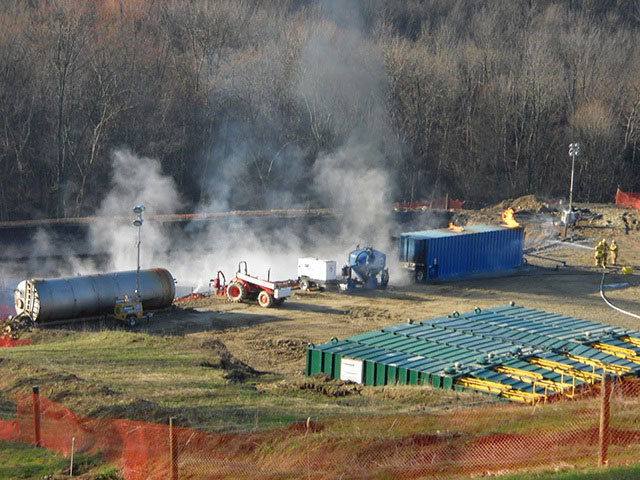
A report published by the US health journal, Reviews on Environmental Health, states that chemicals ‘associated with unconventional oil and natural gas operations’ could cause neurological harm to young children and babies.
The study looks at the potential effects of harm of the chemicals used either in the excavation of shale or in by-products created by the process itself.
The report’s abstract states: ‘Heavy metals (arsenic and manganese), particulate matter (PM), benzene, toluene, ethylbenzene, xylenes (BTEX), polycyclic aromatic hydrocarbons (PAHs) and endocrine disrupting chemicals (EDCs) have been linked to significant neurodevelopmental health problems in infants, children and young adults.
‘These substances are widely used in, or become by-products of unconventional oil and natural gas (UOG) development and operations. Every stage of the UOG lifecycle, from well construction to extraction, operations, transportation and distribution can lead to air and water contamination.
‘Residents near UOG operations can suffer from increased exposure to elevated concentrations of air and water pollutants.’
The study’s results found evidence of both air and water pollutants in the US fracking process linked to neurological problems in children.
In terms of air, the study concluded that ‘UOG operations emit air pollutants linked to adverse neurological effects throughout their lifecycle’ and that fracking released ‘numerous contaminant categories into surrounding water sources’.
Speaking to the Guardian, Ellen Webb, co-author of the research, said: “Given the profound sensitivity of the developing brain and the central nervous system, it is very reasonable to conclude that young children who experience frequent exposure to these pollutants are at particularly high risk for chronic neurological problems and disease.”
Recommended for you
